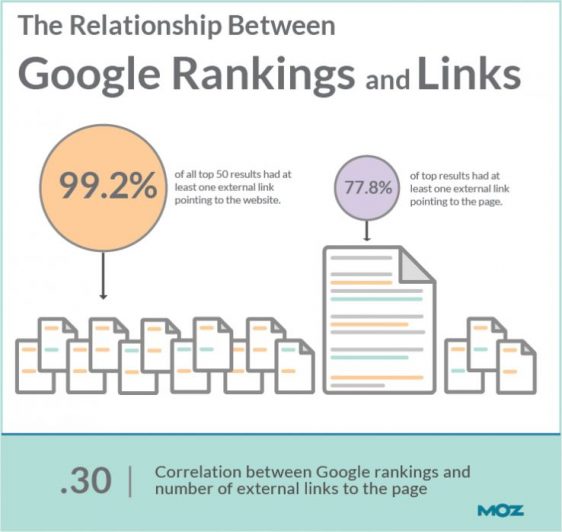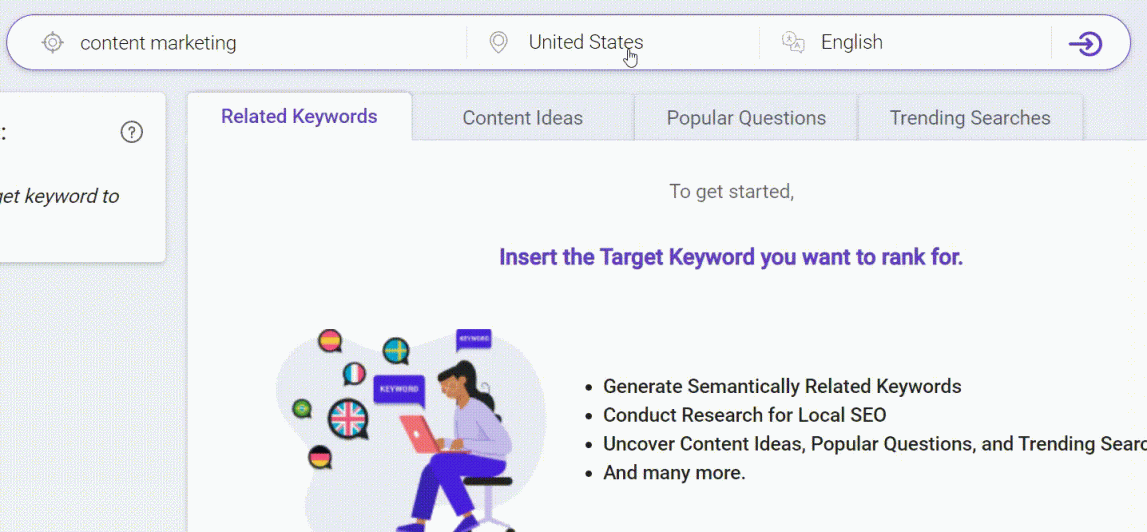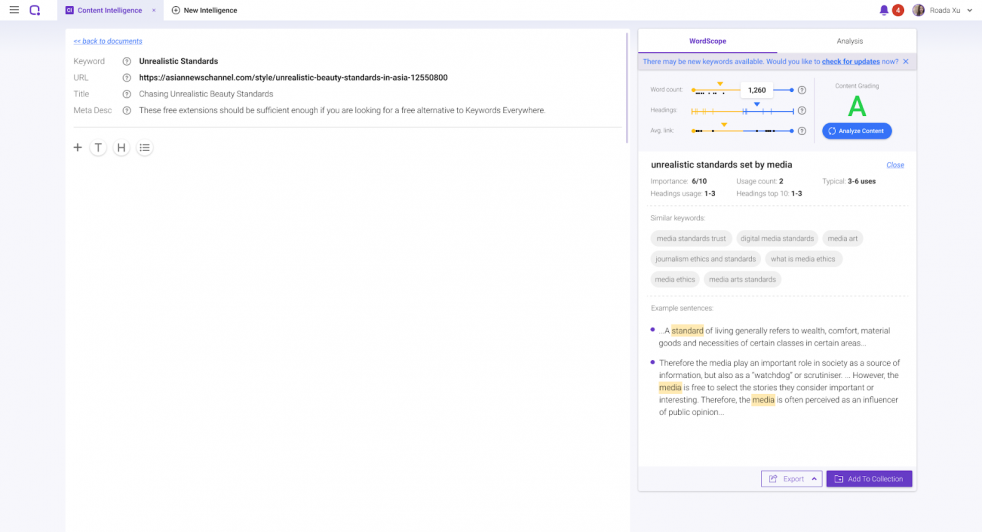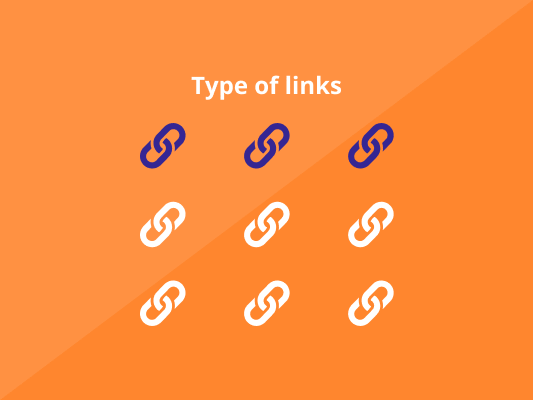Link building is one of the practices that will get you the ranks if done correctly. Understanding the three major types of links for SEO will enhance your visibility.
Link building remains one of the essential ranking factors in digital marketing.
Search engines, particularly Google, highly regard well-placed links in posts and reward web pages that use as many links as they can appropriately within their content.
That’s to say, you stand in a better position of ranking higher in the search engine results pages (SERPs) if you include links in your posts.
To cater to online users’ ever-changing needs and preferences (who happen to be consuming more content by the day), link building processes continue to evolve. But what content marketers must consider is to evaluate the best link to include in their content.
Remember, as much as Google appreciates and rewards websites that use links, it can also work against you if you don’t follow the appropriate linking guidelines. Fortunately, there are several types of link-building methods and link building tools you can use to boost your site’s visibility and improve rankings in the SERPs.
Take advantage of the different link sources available to maximize your digital marketing campaign today!
Why is Link Building Important?
First, having the right type of link for your post is crucial for improving your search ranking, establishing authority, boosting traffic, and improving customer experience.
It’s important because search engines consider it as a major factor in ranking its web pages.
Generally, increasing the number of high-quality links to your website makes it easier for webmasters to determine what your content is about and use it to rank you.

An important concept to note about Google’s take on link building is that you’re more likely to have your web page rank higher for focus keywords if you can get more links to that page. We cannot reiterate this enough.
But ideally, it’s what we’ll probably be talking about throughout this post.
Types of Links in SEO That Matter
Generally, there are several types of link building in SEO you can use to boost your content’s ranking and visibility. You’ll hardly find recently published posts without links to guide you through the web page you’re viewing.
Some types of links matter a lot, especially for search engine optimization purposes.
Yes! Links matter for SEO.
And with that, you should know just how important it is to get your content to the right audience.
With that, here’s a list of 3 types of links we aim to discuss in this post:
- Internal links
- External links
- Backlinks
We will help you further understand these link building strategies and how to use them in your content.
Search engines actually analyze links on websites to determine which websites to rank on top of their search results. It’s only one of the many factors search engines consider when evaluating different sites’ domain authority. Search engines can actually tell whether a website is authoritative and has quality content through its links.
Here’s what you should know:
1. Internal Links
Internal linking is the process of inserting links to some of your web pages to other content within the same domain.
In SEO terms, it’s a page with a hyperlink aimed at leading to other web pages under the same domain.
Internal linking is one of the most overlooked SEO strategies that can get you favor with the search engines.
However, you must remember not to overuse internal linking. 3 to 4 internal links in a single post should be good. So, ensure you link only when it’s necessary. Don’t link for the sake of linking. It will produce the exact opposite results.
Come BiQ Keyword Intelligence.
Keyword Intelligence is the best SEO tool for finding relevant long-tail keywords that match your search intent. The process is as simple as entering your target keyword in BiQ’s Keyword Intelligence tool to analyze it and provide a list of short and long-tail keywords.

The Keyword Intelligence tool also has an “Advanced Filter” feature that filters only long-tail keywords that you can use to boost your internal linking strategy. It determines the level of relatedness between your long-tail keywords and main keywords.
How Does This Type of Link Help Your SEO?
Creating and using internal linking in your blog posts and articles is an important on-page SEO strategy since you (the site owner) will have complete control over internal links. This allows you to make the most of it.
Apart from SEO, internal linking is also critical for user experience. They allow visitors to navigate to where they want to go as quickly and efficiently as possible.
Here are other benefits of using internal links in your content:
(i) Allows Easy Navigation of Websites
Incorporating internal links to your posts affords you control over the exact reading path you want to lay for your visitors. You can use internal links to incorporate a smooth navigation experience for visitors to your website.
Remember, readers will land on your web page with very personalized intentions and wants. It’s your job to fulfill their needs by providing them with what they want. Some will be looking for information, while others want to find your product/service section. Other visitors may just be looking through to get a handle on your platform.
So, you want to strategically use your links by providing them in sections you believe your target audience will likely click on them.
Internal links should help you answer any search intentions visitors may have when perusing through your web post. Use them to redirect your reader to an accurate and relevant web page with even more information you believe they may be interested in reading. Failing to do so might end up hurting your SEO.
For example, you can use internal links to guide your audience to relevant, high-value content, such as a pillar page, that provides comprehensive information on a topic.
Ultimately, the key to effective internal linking is to ensure it gives your visitors a better navigational experience. Enhance their user experience, and they will appreciate you for it. So will Google.
(ii) Spread Link Equity
Every type of link carries equity. This contains the number of elements used by the search engines to rank your content. These elements mainly include link value, topic relevance, the authoritativeness of a page, and website trustworthiness. Link equity is transferable throughout your web pages through internal linking.
Link equity, also called link juice, is an excellent way of sharing the main elements of your pages that rank highly in the SERPs to other web pages within your domain.
However, you shouldn’t spread your ranking page links to all other pages. It would dilute the ranking sites’ overall link equity.
(iii) Helps Google Crawl Your Site Easily
Search engines like Google use web crawlers to check websites and gather information about them to understand your web pages and content better.
Crawlers would visit your website and follow all links within your posts to discover new web pages. Therefore, building a strong internal linking architecture would help crawlers find deeper pages within your website that aren’t always visited.
When integrated into your posts properly, internal links will also help crawlers navigate your website and recognize the most important web pages.
Simply put, internal links create a better crawling experience that allows search engines to index your content and rank it in the search result pages.
2. External Links
Unlike internal links, external links point from your web page to another website that’s not yours. External links, also called outbound links, are often meant to drive visitors to additional information sources on a particular topic.
Searchers will appreciate the effort you put into providing them with every bit of information for their search query. And if it means having to recommend another website to further elaborate on a specific topic, the better.
Search engines like Google will hold your site in high esteem for such actions. There can also be links from other websites pointing back to your web page, thereby driving visitors to your post. That’s referred to as inbound linking.
Basically, external links point to other websites entirely, while internal links drive visitors to other pages within your domain.
How Does This Type of Link Help Your SEO?
Using external links in your blog posts and articles is a critical feature for boosting your content ranking. These links are considered as votes of confidence on your website, thereby increasing your online authority.
Other benefits of external/outbound links include:
(i) Strengthen the Value of Your Content
You probably already know that SEO is about providing searchers with answers to their questions and solutions to their problems. By adding external links to your web pages, you’ll basically be providing your users with more resources to learn more about certain topics.
However, you must ensure that the websites’ you’re linking to are of high quality. These can be government organizations, news organizations, or established content producers.
Linking to spammy websites or resources that lack credibility won’t add any value to your web page. Instead, they could potentially get your website penalized.
(ii) Improves Relevancy Signals
External links signal to search engines that your content is in some way related to the web pages you are linking to. This allows search engines to link several authoritative websites to yours, thereby boosting your domain authority.
The secret lies in using proper anchor texts in your external links to further connect your web pages with respective topics from authoritative websites. Not to mention, it also helps you pass authority to the domains you’ve linked to within your post.
BiQ Content Intelligence is the best tool to help you check each paragraph’s relevancy within your content. It also boosts relevance signals as it helps you understand what’s important to cover each topic.

You can use this information to determine the best anchor text to use for your outbound links. With BiQ Content Intelligence, you can analyze the top-performing organic content and keywords on Google that are relevant to your topic. Link back to these web pages and content. This will not only improve your website user experience but will also improve your overall site rankings.
(iii) Give Referral Traffic
While referral traffic isn’t directly related to organic traffic, external linking to other websites could motivate them also to share your content within their own channels. This will further amplify your content, thereby boosting your referral traffic in the SERPs.
3. Backlinks
Websites get backlinks when other sites link to them.
That’s to say, the other websites like your content enough to want to associate with it by writing some copy about it. They may even share it on social media or put it live on their web pages to share with their valuable users.
However, persuading other websites like bloggers, influencers, and news sites to give you backlinks doesn’t come easy. Your content must be top-notch and good enough for them to want to be associated with it. But when done right, getting backlinks from such authoritative online sources can be a powerful marketing strategy.
The best part about it, it’s free!!
Getting backlinks from reputable and authoritative online sources has several substantial marketing benefits you can exploit.
So, what are backlinks? These are links that go from external URLs to your website. That’s a more simplified explanation for it.
How Does This Type of Link Help Your SEO?
Much has changed about backlinks in the last few years.
The entire landscape of backlinking changed when Google rolled out the Penguin update. Now, your main goal is to get links from relevant and authoritative websites to rank higher in the SERPs.
That said, here are some benefits of backlinking worth checking:
(i) Boost Google Rankings
When used properly, backlinks will help you get better search engine rankings. Search engines now favor websites with lots of backlinks from authoritative and relevant websites and reward them accordingly.
If your content is receiving several links from other websites, Google will perceive your web post as authoritative. As such, you will naturally start to rank higher in the SERPs.
(ii) Bring Direct Traffic to Your Site
Several high-quality links to your website will help your rankings and drive more direct targeted traffic to your site around the clock. For instance, having a popular website link back to your blog post or article could drive direct traffic to your site for years.
Some businesses have very high CPCs. So, every click will drive high-quality direct traffic to your website.
(iii) Establish Brand Reputation
When a reader is checking interesting content online from a reputable and authoritative website, and they see your link within the content. They may see your brand name linked throughout the content and feel the need to associate with your brand.
They will then either click the link to your website or register your brand with the content they’re reading. In either case, they will have some idea about your brand and not hesitate to interact with it down the road.
Conclusion
Link building will always aim to improve your organic traffic position in the SERPs and visibility. But their relevance and overall impact depend on how you use each type of link in your content.
Remember, a successful link building effort could send a lot of organic traffic to your website for several years to come. That alone should be enough motivation to use this SERP ranking feature in your current and future posts.
That said, if you want to stay ahead of your competitors, you must learn the different types of links in SEO and how to apply them in your work.





